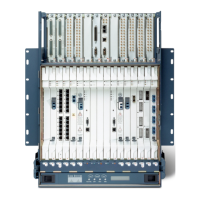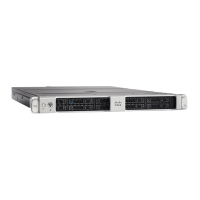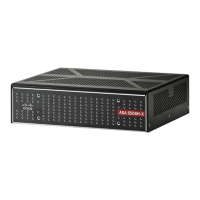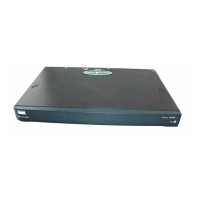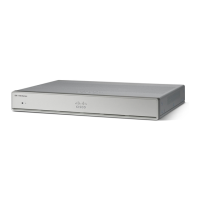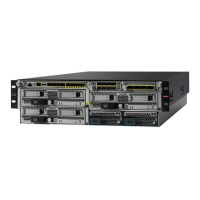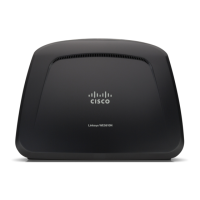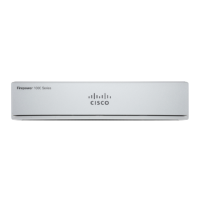5-5
Cisco SCE8000 Installation and Configuration Guide, Rel 3.1.7
OL-16478-03
Chapter 5 Connecting the Management Interfaces
Connecting the Management Interface
Step 2 Connect the other end of the Ethernet cable into your management network.
Make sure that you push on the RJ-45 connector attached to the cable until you hear a click, which
indicates that the connector is fully inserted and secured in the receptacle. Gently pull on the plug to
confirm whether the plug is locked into the socket.
If the Link LED on the port does not light, try removing the cable and reinserting it firmly into the
module socket. To disconnect the plug from the socket, press down on the raised portion on top of the
plug, releasing the latch. You should hear an audible click indicating the latch has released. Carefully
pull the plug out of the socket.
If the Link LED still does not light, verify that the cable is connected correctly to the appropriate network
element on its second end.
How to Verify Management Interface Connectivity
If the Cisco SCE8000 platform has been powered up, test now to verify that connectivity has been
established between the Cisco SCE8000 and the remote management host. If the Cisco SCE8000
platform is not powered up, perform this step after starting the Cisco SCE8000 platform.
Step 1 After you connect the cable to the GBE management port and to your network, check the relevant Mng
port LEDS.
There are two GBE LEDs — Link/Active, and 10/100/1000 (refer to Service Control Module
(SCE8000-SCM-E), page 2-2).
At this point, check that the Link/Active LED is green.
The state of the 10/100/1000 LED will depend on the Ethernet network settings, as follows:
• Off: 10 Mbps
• Green: 100 Mbps
• Orange: 1000 Mbps
Step 2 Test connectivity. From the host that you intend to use for remote management, ping to the Cisco
SCE8000 by typing ping and the Cisco SCE8000 IP address, and pressing Enter (see the example,
below).
Note Only this step (Step 2), is performed from the remote management host (connected by LAN to the Mng
port).
This verifies that an active connection exists between the specified station and the management port.
The ping command sends an echo request packet to an IP address and then awaits a reply. Ping output
can help you evaluate path-to-host reliability, delays over the path, and whether the host can be reached
or is functioning.
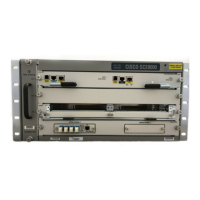
